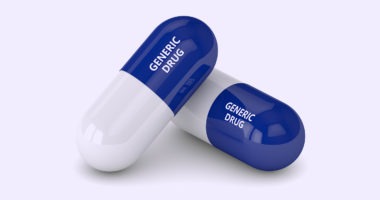Blockchain Enters the Pharma Supply Chain
Blockchain is still an emerging technology, but it is gaining increased interest for use in the pharmaceutical supply chain.
Blockchain has growing interest across all sectors, including in the pharmaceutical industry. A new pilot program seeks to develop blockchain solutions for the pharmaceutical supply chain.
What is blockchain?
With first use in the banking and financial services industries, blockchain technologies leverage advances in software, communications, and encryption to enable organizations to move from maintaining a separate, fragmented database structure to a shared, distributed database that spans organizations. In the context of financial services, blockchain technology supports a shared digital ledger of transactions recorded and verified across a network of participants. With the technology, transactions reside in a tamper-evident data structure that provides the necessary levels of data security and access for each user. Blockchain technologies use software, communications, and encryption to enable moving from a separate, fragmented database structure to a shared, distributed database that spans organizations across a network of participants.
Blockchain in the healthcare sector
Blockchain is beginning to take root in the healthcare sector, including with targeted applications in the pharmaceutical industry. A recent study, “Healthcare Rallies for Blockchains: Keeping Patients at the Center,” by the IBM Institute for Business Value, examined the adoption of blockchain technology in the healthcare sector. The study surveyed 200 healthcare executives, both payers and providers in 16 countries, and found that 16% of those surveyed expect to have a commercial blockchain solution at scale in 2017. From the perspective of blockchain adoption, according to the IBM study, healthcare organizations are moving faster than the financial industry with the 16% of healthcare respondents planning to commercialize blockchains at scale in 2017 compared to 15% of banks and 14% of financial market enterprises.
For the healthcare industry, improved record-keeping, including for clinical data and regulatory compliance, was cited as a potential benefit by 7 out of 10 survey respondents in the IBM study. The report points out that data captured on blockchains can be shared in real time across a scalable group of individuals and institutions. Every event or transaction is time-stamped and becomes part of a long chain, or permanent record, which can’t be tampered with after the fact. On permissionless blockchains, all parties can view all records. On permissioned blockchains, privacy can be maintained by agreement about which parties can view which transactions and where desired, by masking the identity of the party.
Moving the blockchain to the supply chain
Increasingly, blockchain and other digital strategies are being used in other areas, including procurement and supply-chain functions. A 2016 global survey of chief procurement officers (CPOs) by Deloitte, “Procurement at Digital Tipping Point,” pointed out that only 40% of the CPOs surveyed in its study had a digital strategy in place but that there was increased interest by CPOs to invest in emerging digital strategies. To show the potential of blockchain technology overall, the study pointed out that $1.8 billion has been invested overall in blockchain technology over the past three years, and that 80% of the world’s largest banks will have initiated blockchain projects by year-end 2016 with potential savings of $20 billion by 2022.
In a recent article, “Blockchain’s Impact on Sourcing and Procurement Professionals,” Michael Show, chairperson of the American Council of Sourcing and Procurement Executives, a discussion group on sourcing and procurement issues, outlined the potential of blockchain technology for sourcing and procurement. He cites improved security in the blockchain and the verifiability of transactions by network participants, thereby eliminating the need for third-party intermediaries, such as banks, since payments are made directly from the buying entity to the selling entity, which also obviates manual settlement processes. He also points to improved supply-chain governance since once transactions are verified in the blockchain, they are secure and not able to be changed, which is a critical issue when chain of custody is particularly important, such as in the pharmaceutical supply chain. He added that blockchain capabilities will change, if not eliminate, the role of accounts payable and accounts receivable departments.
The next point for blockchain may reside in better managing the pharmaceutical supply chain. In September 2017, Chronicled Inc., a San Francisco-based technology company using blockchain and the Internet of Things (IoT) for supply-chain solutions and The LinkLab LLC, a supply-chain consulting group providing guidance and support on serialization, formed a new joint venture, The MediLedger Project, which will explore and develop blockchain solutions for the pharmaceutical industry. The project is primarily aimed at demonstrating compliance with the Drug Supply Chain Security Act (DSCSA). The DSCSA was signed into law in November 2013 and outlined steps to build an electronic, interoperable system by 2023 that will identify and trace prescription drugs that are distributed within the US.
The LinkLab was founded in 2016 by Eric Garvin, who has 20 years of experience in consulting in the life-sciences industry and Susanne Somerville, former vice president of supply chain at Genentech, a member of the Roche Group. The MediLedger Project has formed a working group, which includes Genentech and Pfizer and pharmaceutical wholesales and distributors, AmerisourceBergen and McKesson. The working group has defined the industry requirements for the blockchain pilot, both for a prototype system and for an industry operating model. The group has met the first hurdle: building a prototype system for the registration and verification of medicines on the blockchain while keeping all business information private from other participants. The next effort will be focused on developing business models and operating requirements.
Experts point to the use of blockchain in the supply chain. “Traditional, centralized databases are like castles with moats,” said Chronicled CEO Ryan Orr, in commenting on the new project. “You can fortify them as much as you want, but a hacker will always find a clever way to sneak inside the castle. Blockchain introduces a whole new paradigm. It’s a distributed network, data [are] cryptographically secured, a breach in one node has no effect on the whole, and the consensus mechanism prevents malicious actors from tampering the system. That’s one of the things that’s really revolutionary about this technology.”
Blockchain may offer several advantages over older technologies, according to information from Chronicled Inc. and LinkLab. Every time an asset is registered, verified, or transferred on a blockchain, a distributed network of validation “nodes” come to consensus, which make it difficult to fabricate or tamper with the event logs. That capability may make it more secure than existing central database solutions, which are vulnerable to hacking and data addition or deletion by a central administrator. The MediLedger Project seeks to leverage this capability to create an interoperable system in which multiple parties, including manufacturers, wholesale distributors, hospitals, and pharmacies can register, verify, and transfer pharmaceutical products.
The MediLedger Project has aspirations beyond helping to enable pharmaceutical companies to achieve DSCSA compliance. The participants hope to use their system to help move the industry forward in improving drug security and preventing the production and trafficking of counterfeit and illicit drugs globally. By year’s end, they plan to have demonstrated, through a series of milestones, the advantages of a blockchain system as the best way forward for this case.
Other industry efforts are underway. In June 2017, the Institute of Electric and Electronic Engineers (IEEE) held the first of a series of education programs on the use of blockchain in the pharmaceutical industry with the first program focused on the pharmaceutical supply chain. The IEEE Standards Association is sponsoring a research study, to be released in October 2017, on the unresolved issues, expectations, and commitment toward adoption of blockchain for the pharmaceutical supply chain.
Another project for applying blockchain to the pharmaceutical supply chain is The Center for Supply Chain Studies, which was established in late 2015, as a neutral, nonprofit industry exploration and education forum, to improve efficiencies, increase productivity, and streamline DSCSA compliance. It was founded by Bob Celeste, former senior director at GS1 US, an information standards organization that facilitates industry collaboration to help improve supply-chain visibility and efficiency through the use of GS1 standards. There, he worked with industry on standards-based, item-level traceability and was the lead in developing the pharma supply chain simulation model for DSCSA.






